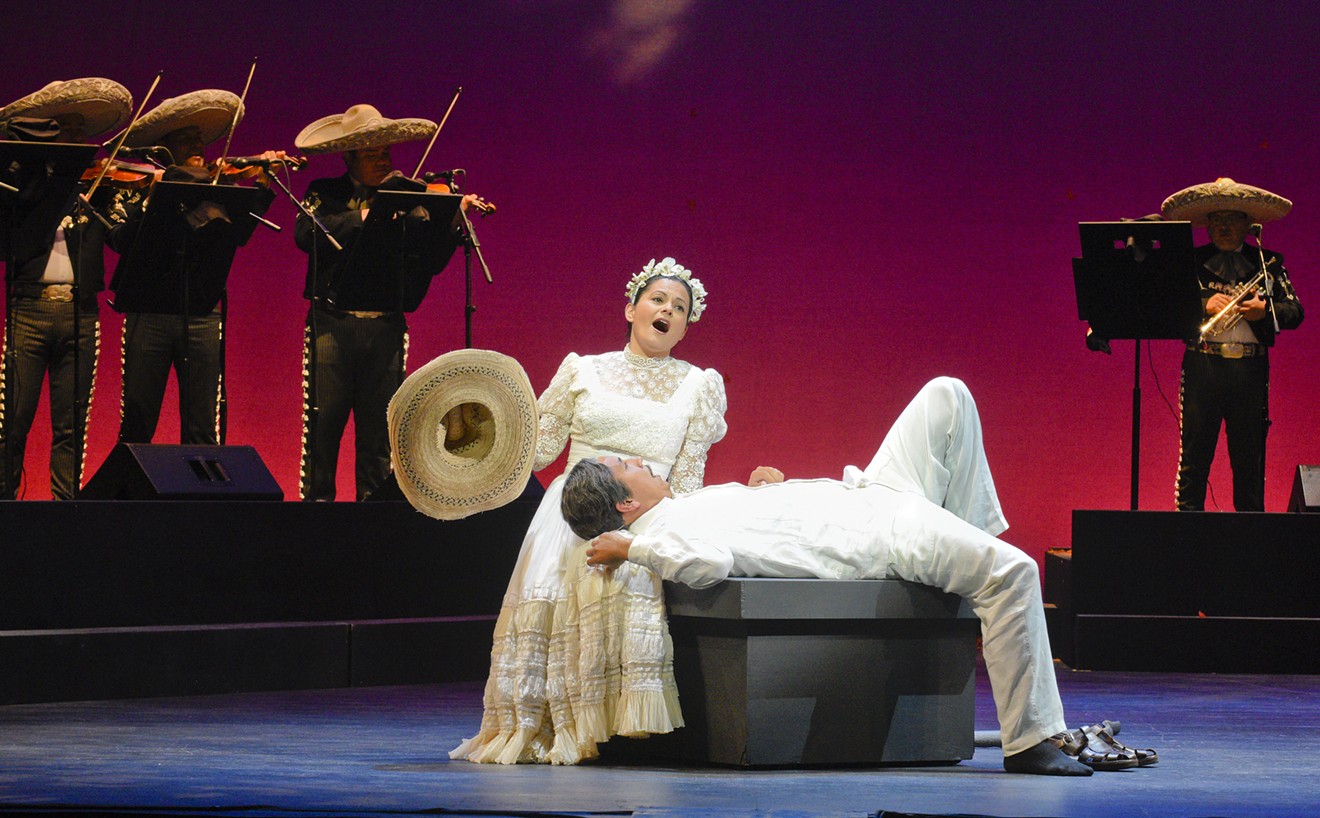But opera has an even bigger problem. According to Operabase, the operas most frequently performed are composed by DWEMs, Dead White European Males. Verdi, Mozart and Puccini top the list.
“In order to stay relevant, Fort Worth Opera aims to celebrate our multicultural heritage and present pieces that our audiences can relate to," says Tuomas Hiltunen, Fort Worth Opera's general director.
The 2018 festival schedule reflects a commitment “to rise to the challenges of the future” and “focus on audience building," Hiltunen says. "Each year, Fort Worth Opera plans to present main-stage opera in Spanish language and site-specific opera in English.”
Fort Worth Opera’s outreach last year included Noches de Ópera (Nights of Opera) a program with the goal of reaching a Latin American audience. The first opera presented as part of the initiative was the mariachi opera Cruzar la Cara de la Luna, which was considered a box-office success. According to figures from the Fort Worth Opera, ticket sales increased 15 percent from April 29 to May 5, almost selling out for the final show.“In order to stay relevant, Fort Worth Opera aims to celebrate our multicultural heritage and present pieces that our audiences can relate to." — Tuomas Hiltunen, Fort Worth Opera's general director
tweet this
This year, it will present María de Buenos Aires, the world’s only tango opera. Gaby Natale, who has been called the Latin American Oprah, will perform multiple roles, both male and female.
Opera simulcasts to parks and movie theaters have brought it to new audiences, but each year, Fort Worth Opera takes one of its productions to a different venue. It will host Brief Encounters, a trio of 15-minute pocket operas about marriage, in a 240-seat auditorium in the Fort Worth Botanical Gardens. Contemporary composers Jake Heggie (Moby Dick, Dead Man Walking), Mark Adamo (Little Women, Lysistrata) and Joe Illick, the Fort Worth Opera's artistic director, wrote the piece.
The 2018 festival season begins with an update of an opera from 1843 that includes cinema and a mime performance. Don Pasquale, the comic opera by Donizetti, tells the story of an aging bachelor trying to reclaim his youth. Stage director Chuck Hudson sets the production in 1950s Hollywood because, as Hudson says in an interview in the LGBT publication Lavender, “The Sunset Boulevard angle was clear and became the lens through which we decided to present the production; a world where the dying black and white movie era meets the innovations of vibrant technicolor.”
“In 2020, FWOpera is excited to present the world premiere of The Last Dream of Frida and Diego by an American composer of mixed Peruvian/Chinese ancestry and of Lithuanian/Jewish descent, Gabriela Lena Frank," Hiltunen says.
Innovation is important to the survival of the performing arts. Opera has the added challenge to overcome the stereotype that it is the sphere of DWEMs.
“It is important our company and our productions look like our community and sound like our community," Hiltunen says. "If we don’t do all that, we are in danger of losing the connection between opera and everything else."











